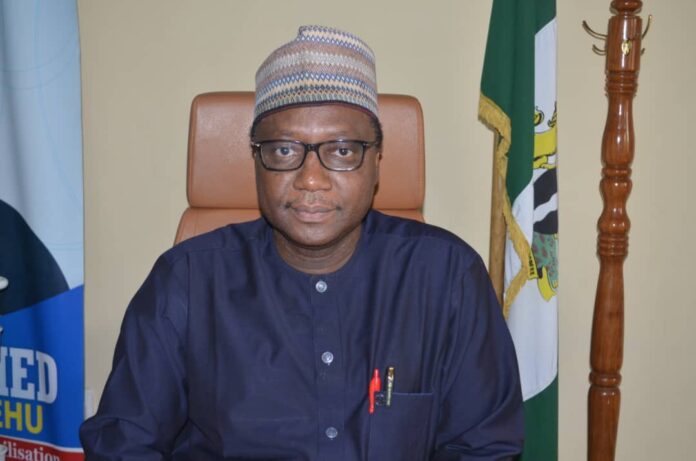The Revenue Mobilisation Allocation and Fiscal Commission (RMAFC) has disclosed the reasons behind the delay in submitting a new revenue-sharing formula to President Bola Ahmed Tinubu, despite growing expectations for a revision.
Mohammed Bello Shehu, Chairman of the RMAFC, revealed that evolving socio-economic conditions and the necessity for a fresh scientific analysis had hindered the completion of the formula.
“We cannot just submit what we have done before because the dynamics and the atmosphere have changed from two years ago to what it is now,” Shehu told The Nation.
A Changing Economic Landscape
The RMAFC boss stressed that economic realities have shifted significantly over the past two years, making it unwise to implement an outdated formula. He emphasized that a thorough reassessment is crucial to ensure that the new revenue-sharing mechanism is aligned with the country’s current fiscal conditions.
In addition, Shehu noted that the commission must first secure the full backing of the Tinubu administration before proceeding with the final stages of submission.
“We still have to get better information and do the proper analysis scientifically, so we cannot rush now into it,” he stated.
Tenure Expiry and Bureaucratic Hurdles
Beyond economic considerations, Shehu pointed out that another factor complicating the process is the imminent expiration of tenure for nearly 20 commissioners within the RMAFC. With uncertainty surrounding their potential reappointment, restructuring the team responsible for finalizing the formula has become a challenge.
The reconstitution of key committees is essential to moving the process forward, and any delay in appointments could push back the finalization further.
Local Government Autonomy: A Stumbling Block
Addressing concerns about local government autonomy, Shehu highlighted constitutional complications that have contributed to governance issues at the grassroots level.
State assemblies, he explained, wield constitutional authority over local governments, leading to problems with joint accounts. According to Shehu, this structure has allowed governors to maintain significant control over local government funds, stifling independent decision-making at that level.
The RMAFC chairman referenced a Supreme Court ruling in the Abia vs. Federation case, which removed the commission’s role in managing joint local government accounts.
He also pointed to the failure of former President Muhammadu Buhari’s Executive Order (EO) aimed at strengthening local government autonomy, attributing its collapse to strong opposition from state governors.
“The governors resisted the executive order, leading to its non-implementation,” Shehu remarked.
Call for Legislative Intervention
To resolve these challenges, Shehu suggested that the National Assembly take the lead in addressing constitutional contradictions affecting local government funding and operations.
However, he acknowledged the complexity of constitutional amendments, which require approval from two-thirds of both the national and state assemblies.
Shehu expressed concern over the decline in effective local governance, comparing the situation to over a decade ago when local government councils actively built roads and schools.
“Now, governors have completely overshadowed local administration,” he lamented.
Election Manipulations at the Local Level
Beyond financial constraints, Shehu criticized the political control exerted by governors over local governments. He noted that while governorship elections often exhibit some level of competitiveness, local government elections are frequently manipulated to ensure that the ruling party in the state wins overwhelmingly.
“Where you have semblance of fair elections, it is better for our democracy,” he concluded.
What’s Next?
With no definitive timeline for the submission of the new revenue formula, the delay underscores broader governance issues in Nigeria, from economic policy shifts to the political dominance of state governors over local councils.
The fate of the revised revenue-sharing arrangement now hinges on further studies, political consultations, and the resolution of constitutional bottlenecks—a process that could stretch well beyond 2025.

